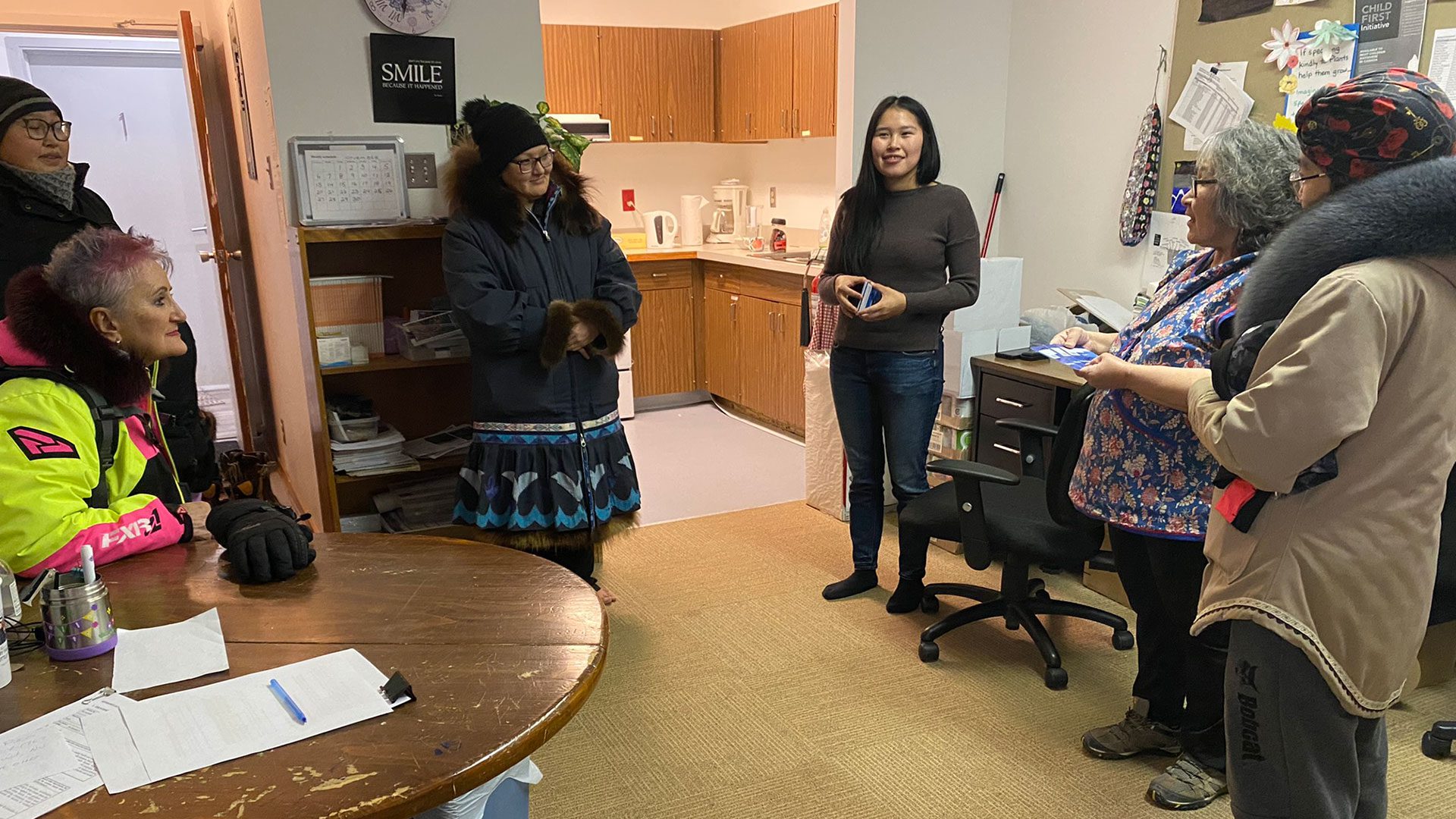Along with having the fastest-growing population anywhere in the country, Nunavut’s 25 fly-in communities also have some of the highest unemployment rates in the country.
According to recent data from Statistics Canada, the hamlet of Kugluktuk, located on the Arctic Ocean in western Nunavut, the rate sits at 30 per cent.
That’s why the region of Kitikmeot backed a recent pre-employment course.
Roxanne Hala, a program participant completed her job shadowing placement at the territorial department of economic development and transportation.
“I had doubt if I was able to have the skills,” Hala said. “I never had confidence in looking for a job because I didn’t have a resume finish and taking that [the program] I learned to do a cover letter, resume and resignation letter.”

Pre-employment instructor Rae Dicks said the program aimed to empower participants and teach them transferable after they had spent some time out of the workforce.
“We looked at setting goals, budgeting, self-esteem, violence, family violence, lateral violence and we looked at Inuit values and applied them to the workforce,” Dicks said. “One thing is childcare; I’ve got a participant that got six children, a single mom that in and of itself.”
Across Nunavut, income inequality has worsened. While government and mining employees live in one tax bracket, others are left behind.
Read More:
Mother in Kugluktuk, Nunavut pinches pennies every day to get by
People in Kugluktuk opening up about love, challenges of living in Arctic
Participants also examined barriers to obtaining and retaining employees – and what Kugluktukmiut can do to pave a successful future for themselves.
For a final project, program participants collectively chose to tackle the issue of food insecurity.
“We talked about all the different issues as the issues came up for an individual and some of those issues themselves,” Dicks said. “For example, domestic violence, food insecurity, alcoholism.”
Despite rampant food insecurity across the territory, Kugluktuk lacks a food bank.
Organizations such as the elder’s group, and family services have done what they can and assumed the position of filling in the gaps by serving lunch or dinner every other day to offset the cost food for those in need.
“The group raised a lot of money, but every participant also donated money, even though they needed money themselves,” Dicks said. “They recognized even when you have little you can still give a little and it feels good to care of each other.”

Hala, a mother of two, said she was proud to have helped with fundraising efforts to help the cause.
In total, the program raised nearly $3,000 to distribute to organizations that tackle food insecurity through drop-in meal services and food hamper distribution.
“We’re dropping off gift cards to the elder’s center and mental wellness center, because we started with a stock the pantry shelf to provide food on a serving-go basis,” Hala said.
She admitted she too struggled too when her daughter was on formula and in diapers.
“It’s tough to have to choose, I want to keep up with my rent but yet I want to be able to buy what my children need, so I am taking this course to get to work and provide for my children,” she said.
The program produced four graduates with some deciding to enroll in a subsequent training course and others obtained employment.
Hala said she’s recently had a job interview for a position as a student support assistant.
“I’m so ready to look for a job and I have so much confidence in myself,” Hala said, “the first place I brought my resume to the high school and I received a phone call this morning to go in.”









